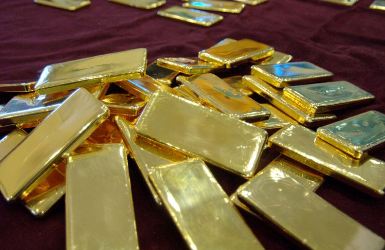Gulf companies to invest in Sudan’s gold mining
August 17, 2016 (KHARTOUM) – Sudan has welcomed the interest of a group of companies from Saudi Arabia, United Arab Emirates and Qatar to invest in mining sector in the country.

In a press statement after the meeting, al-Karouri, said that his ministry is keen to support all Arab and Gulf companies to invest in the mining.
“We have very simple requirements for investing in minerals and all procedures are done at the Ministry of Minerals,” he said.
Al-Karouri stressed that there are no restrictions on gold exportation, pointing that the investing companies can export all the gold they produce.
The Sudanese minister further pledged to facilitate all the procedures for the investors from Qatar, U.A.E and Saudi Arabia.
Last July, al-Karouri said Sudan expects to produce 100 tonnes of gold in 2016, pointing it would become Africa’s second largest and among the world’s top ten producers by the end of the year.
In April, the Ministry of Minerals said that Sudan’s production of gold has risen by 3 percent compared to 2015.
Near 70% of the country’s gold production in 2015 was produced in the River Nile State. The traditional mining represents 90% of gold production in Sudan.
Sudan currently ranks third in gold production behind South Africa and Ghana but aims to land in the first place by 2018.
Gold has become one of Sudan’s largest exports which partially compensated for the loss in oil revenues, which accounted for more than 50% of income until 2011 when South Sudan seceded, taking with it most of the country’s oil reserves.
Sudan approved a law to regulate traditional mining by granting licenses and specifying areas to work in to protect them from hazardous conditions and smuggling.
It is believed that traditional mining employs more than a million Sudanese but it is still difficult to obtain credible data.
(ST)
